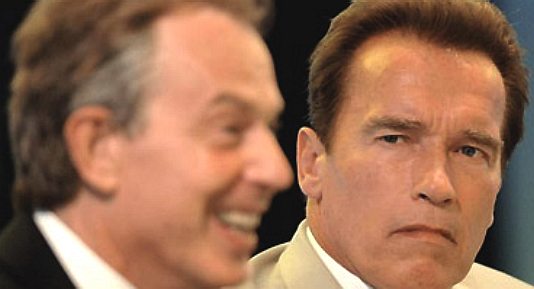|
KARA TOMBLING
HOME | CASE STUDIES | HISTORY | LAW | POLITICS | RIGHTS | SITE INDEX
|
|
|
Sergeant Kara Tombling is a police officer at Sussex Police, part of the local policing unit at Herstmonceux. She has been asked to look at malfeasance in public office at the Wealden District Council. A number of officers of this council, past and present, are alleged to have committed perjury, or of providing false or misleading evidence to planning Inspectors and even High Court Judges; the criminal offence of perjury or the alternative of attempting to pervert the course of justice.
The well known dissident, Nelson Kruschandl is just one of a number of local Sussex residents who are victims of Wealden's various vendettas that amount to institutionalised discrimination.
The frequency of the events alleged is suggestive of an ingrained agenda that operates to keep planning consents out of the reach of certain residents, to the benefit of other better connected concerns. The chief executive of this council, Charles Lant is believed to be implicated by virtue of not acting to prevent crime in his council. The leader of the council, Bob Standley is alleged to have been put on notice as the some of these matters, but is seems is also sitting on his hands. The operations of this council are alleged to amount to a course of malicious conduct or even fraud, as defined by the Fraud Act 2006.
Even more worrying is whether or not the Sussex Police is party to these allegations of serious crimes and what party her Chief Constable, Giles York plays in all of this. It would be a feather in any police officer's career if he or she uncovered corrupt practices at a higher level and was brave enough to expose those cover-ups. It is a criminal offence to know of a crime and not report or investigate it.
It is alleged that Sussex police are complicit in the agenda of Wealden District Council to rubbish their dirtiest darkest secret by framing the occupier of the historic building that George White and Thomas Hoy lied about on oath before Inspector Raymond Dannruether in 1986-1987.
It is alleged that as a result of deceiving Mr Dannreuther that they obtained a fraudulent instrument with which to torment Nelson Kruschandl with preventing him from developing his talents as a creative engineer and destroying a marriage and a second long term common law relationship, driving him into a relationship with an unstable psychiatric nurse who was also a single mother.
It is alleged that as Mr Kruschandl became more successful in planning appeals and in defeating enforcement actions against the protagonist council, that they sought a way to bury him - and that they did this by grooming the feelings of the daughter of the psychiatric nurse after an engagement was called off, leading to an acrimonious split where the young girl was emotional putty in the hands of social services who coached her, fabricating a story that relied on there being no evidence to contradict her story.
It is alleged that the Sussex police conspired with the CPS and a trial Judge, Cedric Joseph, to gain a conviction against a charge of multiple rapes, where their witness was still intact and a virgin when inspected by Melanie Liebenberg, a witness who also aided and abetted the gaining of this conviction by misinforming the jury as to marks that are naturally occurring, suggesting that they must be from foul play when she must have known otherwise.
It is alleged that Gordon Staker and James Hookway deliberately failed to secure the so-called crime scene, avoiding collecting any evidence that was inconsistent with the allegation they had been tasked to prove. That is doing so they knew that the defendant would be unable to mount any kind of defence where the police controlled the crime scene.
It is further alleged that the police investigators had full knowledge that the defendant was Legally Aided and did not have the resources to challenge the might of the state where the Sexual Offences Act 2003, introduced by David Blunkett, reverses the burden of proof contrary to Articles 10 and 11 of the Universal Declaration of Human Rights.
MISFEASANCE & MALFEASANCE
When an officer of the courts omits to include evidence that he knows is relevant to a hearing, that is termed misfeasance in public office. Where an officer then tries to cover up his or her misfeasance (as did Ian Kay in the Stream Farm matter), that becomes malfeasance. The difference is that misfeasance is a civil wrong, whereas malfeasance is a criminal offence. The leading case precedent on malfeasance is: R. v Bowden 1995 Court of Appeal (98 1 WLR).
Vicarage Lane, Hailsham,
East Sussex, BN27 2AX T: 01323 443322
LINKS & REFERENCE
Shadow Sussex Police crime commissioner blogspot UK 2016 January three new cases to rock the Bill http://shadowsussexpolicecrimecommissioner.blogspot.co.uk/2016/01/three-new-cases-to-rock-sussex-police.html http://www.theargus.co.uk/news/11845212.__9_000_bronze__Noah_s_Ark__bird_bath_stolen_from_Lewes_garden/ http://www.sussex.police.uk/ http://www.wealden.gov.uk/
Paul Whitehouse (1993-2001) Ken Jones (2001-2006) Joe Edwards (2006-2007) Martin Richards (2008-2014) Giles York (2014 >>)
|
|
FAIR USE NOTICE
This site contains copyrighted material the use of which has not always been specifically authorized by the copyright owner. We are making such material available in our efforts to advance understanding of environmental, political, human rights, economic, scientific, and social justice issues, etc. We believe this constitutes a 'fair use' of any such copyrighted material as provided for in section 107 of the US Copyright Law. In accordance with Title 17 U.S.C. Section 107, the material on this site is distributed without profit to those who have expressed a prior interest in receiving the included information for research and educational purposes. |
|
|
This site is protected under Article10 of the European Convention on Human Rights and Fundamental Freedoms.
|


